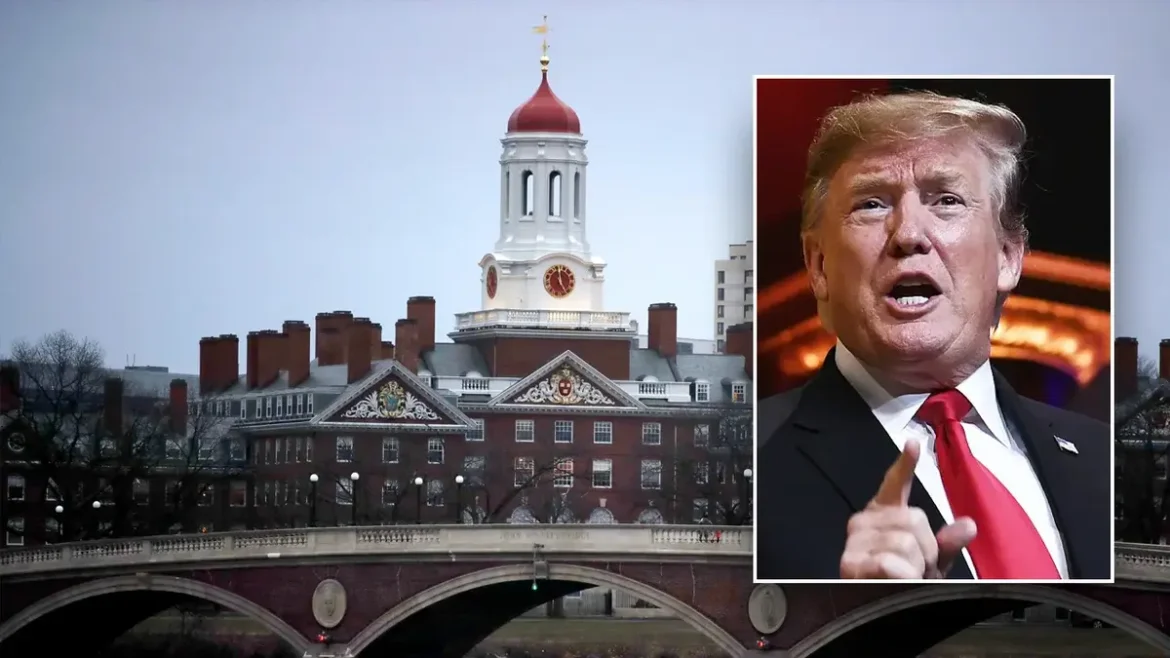In a major development that could reshape the relationship between the U.S. federal government and top universities, the Trump administration has frozen over $2.2 billion in federal grants and contracts to Harvard University. This move comes as part of a broader campaign targeting elite Ivy League institutions for allegedly failing to align with the administration’s political and cultural expectations.
Harvard joins University of Pennsylvania, Brown, and Princeton, which have already faced similar funding freezes as the administration pushes for sweeping reforms.
What Triggered the Freeze?
The freeze follows Harvard’s refusal to comply with a “demand letter” from the administration that outlines a list of strict conditions. These include:
- Implementing “merit-based” admissions and hiring policies
The administration wants to curb affirmative action policies and push for test-based admissions and performance-driven faculty selection. - Conducting a campus-wide audit
Harvard is being asked to review the views of its students, faculty, and leadership regarding diversity, inclusion, and free speech. - Banning face masks on campus
A move widely interpreted as a crackdown on pro-Palestinian student protesters, many of whom wore masks during demonstrations. - Defunding and derecognizing student groups
Any club or organization allegedly promoting “criminal activity, illegal violence, or harassment” would lose university recognition and funding.
Harvard’s Response: A Stand for Academic Freedom
In an open letter to the Harvard community, President Alan Garber said the university will not comply with the demands, calling them a violation of constitutional rights and an overreach of federal authority.
“No government — regardless of party — should dictate what private universities can teach, whom they can admit and hire, and what areas of study they can pursue,” Garber wrote.
Garber also pointed out that the demands “exceed the statutory limits” of federal powers under Title VI of the Civil Rights Act, which prohibits discrimination based on race, color, or national origin — but does not authorize control over academic policies or free speech.
The Bigger Battle: Ivy League Under Pressure
This move against Harvard follows earlier actions taken against:
- University of Pennsylvania, Brown, and Princeton, which also had federal funds paused.
- Columbia University, which altered some policies after facing threats of multi-billion-dollar cuts.
The Trump administration argues that these universities have allowed antisemitism to flourish during recent protests against Israel’s actions in Gaza. However, the universities deny these accusations and claim they are being targeted for political reasons.
National Reaction and Legal Pushback
The administration’s aggressive stance has sparked a strong wave of criticism and legal action:
- Harvard alumni, including civil rights leaders like Anurima Bhargava, issued a joint statement urging the university to fight back.
- A lawsuit has been filed by the American Association of University Professors (AAUP), claiming that the government failed to follow legal procedures before freezing the funds.
- Over the weekend, students, faculty, and Cambridge residents joined protests in support of Harvard.
The lawsuit argues that the administration’s actions are not based on any formal findings of discrimination, but rather are aimed at forcing compliance with political ideology.
“These demands are not about fixing discrimination,” the lawsuit says. “They’re about imposing a political agenda and punishing protected speech.”
Why It Matters to Students Worldwide
This incident has significant implications for both current and prospective students, especially international students planning to study in the U.S.:
- University autonomy is under threat – Key decisions about teaching, admissions, and campus policies are being politicized.
- Funding uncertainties – Billions in research, education, and campus development funds are now at risk.
- Free speech on campus – Student activism and protests are being directly targeted, raising concerns about students’ rights.
This also sends a strong signal to students around the world about how rapidly political changes can affect academic environments, especially in countries with strong government funding ties to education.
Interesting Read
What’s Next?
The outcome of this battle will likely set a precedent for how much influence the federal government can exert over private universities — especially when funding is used as leverage. If the courts uphold the administration’s actions, it could lead to a nationwide reshaping of admissions policies, diversity initiatives, student freedoms, and institutional governance.


